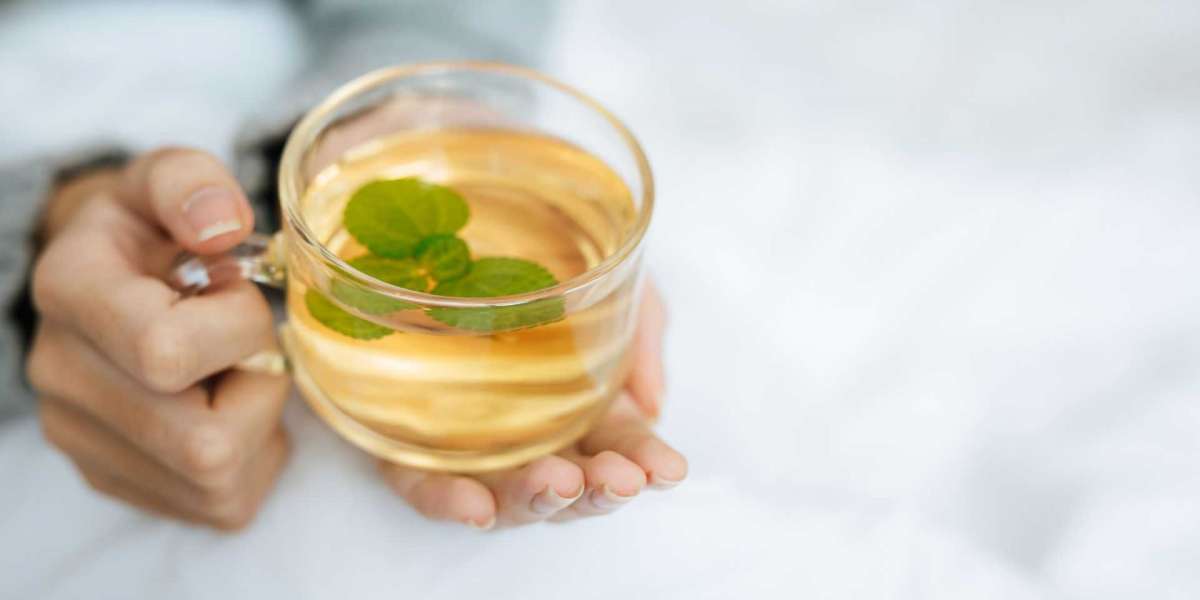Singers rely heavily on their voices to perform at their best, and maintaining vocal health is a top priority. One of the most natural ways to soothe and protect the voice is by drinking the right tea. Many teas are known for their ability to reduce inflammation, moisturize the throat, and provide relief from strain. In this article, we will explore the best teas for singers and how they can help maintain a healthy, strong voice.
1. Ginger Tea
Ginger tea is one of the most effective teas for singers due to its powerful anti-inflammatory properties. Ginger helps soothe the throat, reduce swelling, and relieve irritation caused by overuse or illness. Additionally, ginger tea can help alleviate cold symptoms that may affect your voice.
Benefits for Singers:
- Reduces inflammation in the vocal cords.
- Alleviates symptoms of colds, such as a sore throat or congestion.
- Supports digestion, which can indirectly benefit vocal performance by reducing acid reflux.
How to Prepare:
- Add freshly grated ginger to boiling water and let it steep for 10 minutes.
- Optionally, add honey and lemon for extra soothing effects.
2. Licorice Root Tea
Licorice root tea is another popular choice for singers due to its throat-coating properties. Licorice root helps form a protective layer over the vocal cords, reducing irritation and providing relief from dryness.
Benefits for Singers:
- Soothes irritated vocal cords.
- Acts as a natural demulcent, coating the throat.
- Reduces the impact of dry air and other environmental factors that can harm the voice.
Important Note: Licorice root can affect blood pressure, so it’s important to consume it in moderation, especially for individuals with high blood pressure.
3. Throat Coat Tea
Throat coat tea is a favorite among professional singers because it’s specifically designed to protect the voice. This herbal tea often contains a blend of licorice root, slippery elm, and marshmallow root, all known for their soothing effects.
Benefits for Singers:
- Provides a protective coating on the vocal cords.
- Reduces throat irritation and dryness.
- Helps keep the throat hydrated during long performances or rehearsals.
How to Use:
- Throat coat tea is readily available in pre-made tea bags at most health stores.
- Drink it warm before or after singing to promote vocal comfort.
4. Chamomile Tea
Chamomile tea is a calming herbal tea that can help singers relax and reduce anxiety before performances. In addition to its calming effects, chamomile also has mild anti-inflammatory properties that can soothe the throat.
Benefits for Singers:
- Reduces stress and anxiety, which can affect vocal performance.
- Offers mild anti-inflammatory effects to soothe the throat.
- Can promote better sleep, leading to vocal recovery.
How to Prepare:
- Steep dried chamomile flowers or a tea bag in hot water for 5–10 minutes.
- For added soothing benefits, consider adding honey.
5. Peppermint Tea
Peppermint tea is known for its refreshing and cooling properties. While it doesn't directly coat the throat like some other teas, it can help open up the airways and soothe mild respiratory irritation, making it a good option for singers dealing with congestion or allergies.
Benefits for Singers:
- Helps open up the airways and reduce congestion.
- Provides a cooling sensation that soothes irritation in the throat.
- Can reduce symptoms of acid reflux, which can negatively affect the voice.
How to Use:
- Steep peppermint leaves or a tea bag in hot water for 5 minutes.
- Inhale the steam while sipping to maximize the decongestant effects.
6. Green Tea (Decaffeinated)
Green tea is rich in antioxidants, which can help reduce inflammation and promote overall vocal health. However, it’s important to choose decaffeinated green tea since caffeine can cause dehydration and potentially strain the voice.
Benefits for Singers:
- High in antioxidants that protect the vocal cords.
- Reduces inflammation and boosts overall health.
- Lowers the risk of vocal damage caused by environmental factors.
Caution: Always opt for decaffeinated versions, as caffeine can be drying to the throat and vocal cords.
7. Slippery Elm Tea
Slippery elm tea is a well-known remedy for sore throats and is particularly beneficial for singers. It contains mucilage, a gel-like substance that coats and soothes the throat, making it easier to sing for long periods without discomfort.
Benefits for Singers:
- Forms a protective layer over the vocal cords.
- Relieves throat irritation and soreness.
- Hydrates and lubricates the throat for smoother singing.
How to Use:
- Steep slippery elm bark in boiling water for 10 minutes.
- Drink the tea warm to maximize its soothing properties.
8. Lemon and Honey Tea
Though not technically a specific type of tea, lemon and honey tea is a powerful combination for singers. Lemon provides vitamin C and helps cut through mucus, while honey is a natural throat soother that coats the vocal cords and reduces irritation.
Benefits for Singers:
- Clears excess mucus from the throat.
- Honey acts as a natural demulcent, soothing irritation.
- Provides hydration and vocal support before or after singing.
How to Prepare:
- Squeeze half a lemon into a cup of hot water and stir in a tablespoon of honey.
- Drink it warm to soothe the throat and prepare your voice for performance.
9. Fennel Tea
Fennel tea has a long history of use for soothing sore throats and improving digestion. For singers, it’s particularly beneficial due to its anti-inflammatory and throat-soothing properties. It also helps reduce phlegm, making it easier to sing with a clear voice.
Benefits for Singers:
- Reduces throat irritation and inflammation.
- Helps clear phlegm and mucus from the throat.
- Supports digestive health, which can benefit singers prone to acid reflux.
How to Use:
- Steep fennel seeds in boiling water for 10 minutes.
- Drink it warm to benefit from its soothing effects.
Conclusion:
The voice is a singer’s most valuable asset, and taking care of it requires careful attention to hydration and vocal health. The teas mentioned above offer a natural, effective way to protect and soothe the vocal cords. Whether you’re preparing for a performance or recovering after a long rehearsal, incorporating these best teas for singers into your routine can help keep your voice in top condition.







